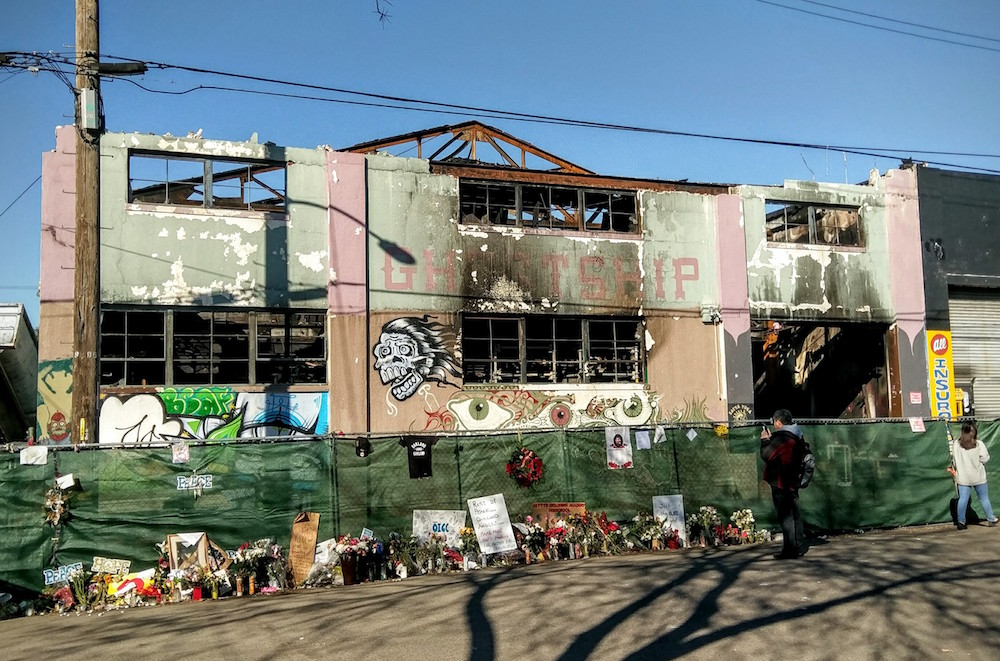The judge in the trial of Ghost Ship warehouse master tenant Derick Almena and creative director Max Harris has limited the jury instructions about the possibility that the fire at the warehouse in 2016 that killed 36 people was caused by someone else.
Closing arguments will be presented on Monday in the trial of Almena, 49, and Harris, 29, on 36 counts of involuntary manslaughter for the blaze during a music party at the warehouse late on the night of Dec. 2, 2016.
Alameda County prosecutors allege that Almena and Harris are criminally responsible for the fire because the people at the music party didn’t have the time or opportunity to escape the blaze since the warehouse didn’t have important safeguards, such as fire sprinklers, smoke alarms and lighted exit signs.
Prosecutors also allege that Almena and Harris violated the terms of the building’s lease, which only called for it to be used as a warehouse for an artists’ collective by turning it into a living space and hosting underground music parties there.
But defense attorneys allege that the fire was an act of arson that Almena and Harris couldn’t have prevented, as a defense witness testified that she overheard a group of 14-19 men congratulate themselves on starting the fire at the warehouse. Defense lawyers also say firefighters, police officers and other authorities who visited the building before the deadly fire in 2016 never told Almena and Harris that they thought it was unsafe or told them to make changes to bring it up to code.
Testimony concluded on July 16, but Alameda County Superior Court Judge Trina Thompson, who is presiding over the case, told jurors that closing arguments won’t begin until next Monday because she and the attorneys needed time to review jury instructions and the approximately 170 exhibits in the case. Thompson said jury deliberations are expected to begin on Aug. 5.
In the debate about jury instructions in the case, defense attorneys sought expansive language about third party culpability, which is the possibility that someone other than Almena and Harris may have caused the fire. But in a recent ruling Thompson said the instructions proposed by the defense “contain passages that are argumentative.” Thompson said, “The argumentative language is stricken because the passages highlight speculation in the case.”
Thompson said the more limited instruction she will give “does not tell the jury it cannot consider evidence that someone else was the perpetrator.” The judge said, “It merely says the jury is not to speculate on whether someone else might or might not be prosecuted” for the fire.
The instruction that Thompson will read to jurors says, “You have heard some evidence that a person other than the defendants may have committed the offence for which the defendants are charged. If that evidence, after consideration of all the evidence in the case, raises a reasonable doubt as to the defendants’ guilt, you must find the defendants not guilty.”
The instruction that lawyers for Almena and Harris wanted to give jurors specifically named the building’s owners, electrician Ben Cannon, warehouse co-leaseholder Nico Bouchard and party organizer Jon Hrabko as people who might be criminally liable for the fire. The instruction proposed by the defense also mentioned the unnamed people the defense witness said had bragged about starting the fire.
The proposed instruction said the defense doesn’t have to prove the guilt of any of those people but said if jurors “have a reasonable doubt as to which person committed the offense you must give the defendants the benefit of that doubt and find them not guilty.”
